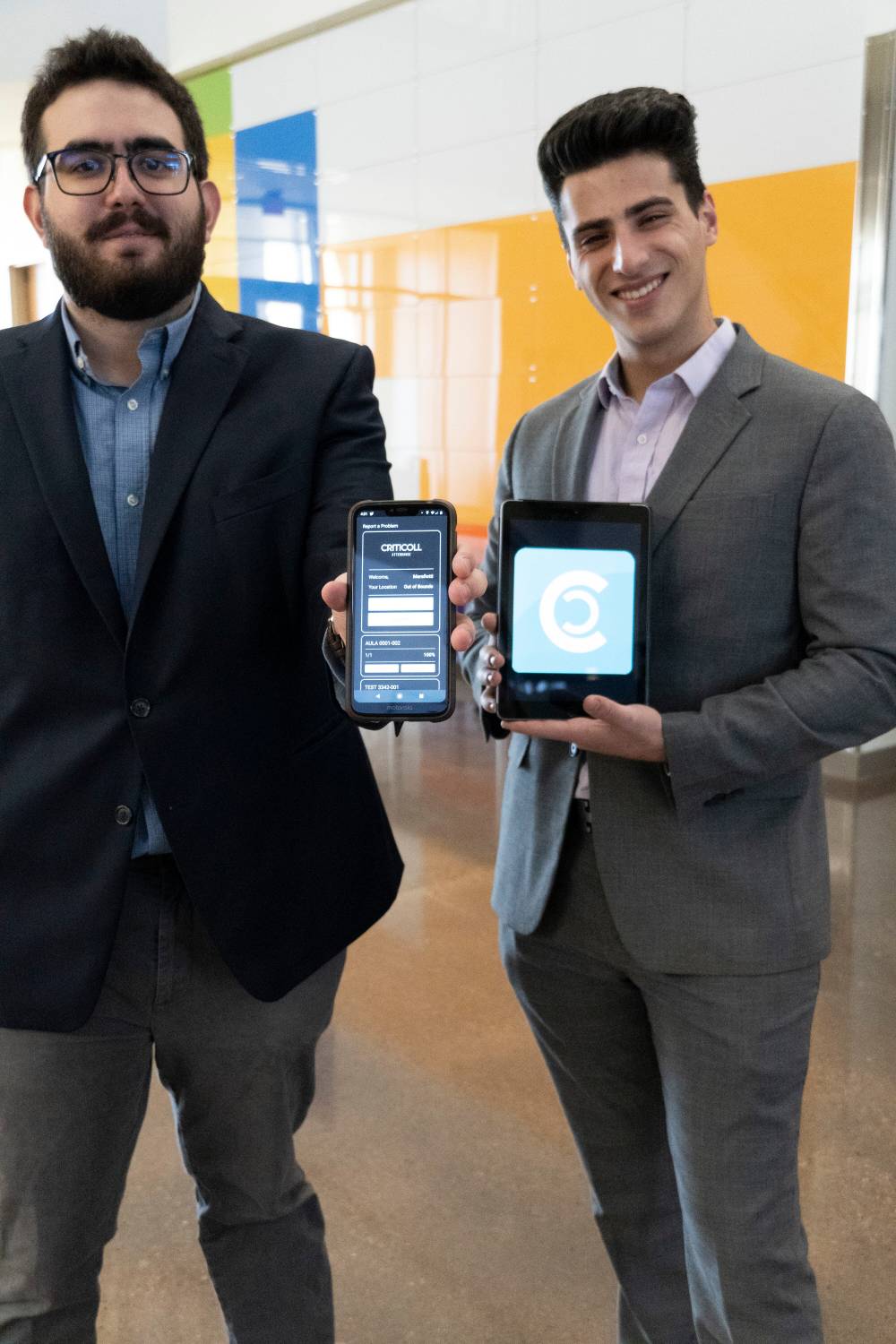CritiColl's attendance-tracking app is on a "roll"
"Our success story has built on failures and rejection," says startup entrepreneur Matheus Pagotti, the CEO and founder of CritiColl. He and his COO Pedro Marafiotti are Texas Tech University seniors as well as participants in the 2020-2021 TTU Accelerator program. They're developing an innovation in education thanks to their education in innovation through the Innovation Hub.
"My first semester as a college student was very unsuccessful," Pagotti recalls. "I decided to try to find some sort of academic-related technology to help organize my tasks and my time. That was the original idea for CritiColl."
After seeing a flyer at his dorm promoting programs in entrepreneurship, Pagotti brought his idea to the Hub. Over the next three years, he kept coming back for each program and competition offered. "The Innovation Hub taught Pedro and me how to conduct customer interviews, how to interpret customer discovery, and to become entrepreneurs. Every single time we went to the Hub, we came back with information, constructive criticism, and encouragement," he says.

Feedback Pagotti and Marafiotti received during a Red Raider Startup weekend helped CritiColl find its current focus. Pagotti says, "That helped us realize class attendance-taking software was the best beginning application for us to develop. Instead of having to target something to 38,000 Texas Tech students, we could provide a tool to the 2,000 or so professors. They could introduce it to the students."
Advice from mentors and insights from the iLaunch and NSF I-Corps programs helped the duo refine their concept. Pagotti says, "We've made an easy-to-use, affordable record-keeping app that can increase faculty productivity and student performance. It provides motivation because going to class equals success for students, and being held accountable helps achieve that goal."
The "concept"
CritiColl's software offers professors the option of giving students daily QR or 4-digit codes to enter on the app. Students can use their phones to scan the QR code displayed on a classroom projector screen or a computer screen during online lectures. The numeric code check-in process is linked to a geofence system that verifies each student is actually near the professor leading the class. Pagotti notes CritiColl can be used to track student engagement, too, when professors require them to enter the codes at random times during a class. The software generates individualized reports to track attendance and progress as well.
In the spring of 2019, Pagotti approached his psychology professor about alpha testing a prototype in the classroom. There were 40 students in the course. Pagotti says, "After that, we had the summer to fine-tune things based on the feedback we got." In the fall, CritiColl began beta testing in two classes with 170 student users. Pagotti says, "Although the technology was a little more developed and advanced, there were still things we wanted to learn like user behavior, how they reacted to the system, and what we could do to make their lives easier."
In the spring semester this year, CritiColl started implementing changes based on the additional feedback. It also made adaptations to accommodate Tech's switch to all online classes in March in response to the COVID-19 pandemic. Pagotti says, "Some professors had had such a positive experience with CritiColl that they introduced it to more professors."
Failing forward
It's not all been smooth sailing for the fledgling startup. Pagotti says, "I failed with my first co-founder before I got Pedro on the team. CritiColl had been rejected three times before we were accepted this year into the TTU Accelerator program. Each failure and each 'no' has been an opportunity for us to refocus on our goals and make improvements. That's what hustle is to me." Pagotti says, "Embracing failure is something that's helped us move forward. I say a 'yes' is the best thing you can receive from anybody. A 'no' is the second-best thing. It leads you to find out the reason behind it so you can address that flaw." He adds, "Above all else, innovation and entrepreneurship are learning processes."
